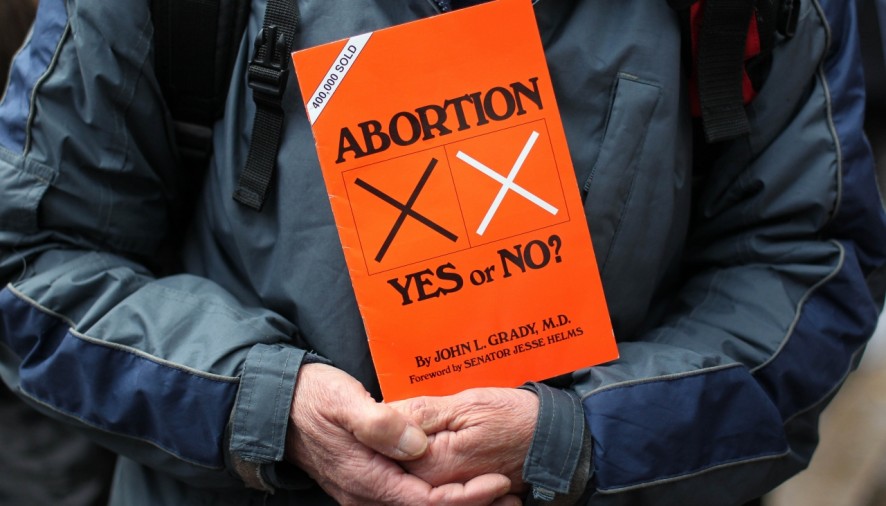Whilst in most of the UK, people have been able to access free abortion under the NHS since 1967, those who reside in Northern Ireland are still, even in 2015, not afforded this basic right. The way the law currently stands even those who fall pregnant due to rape or incest are unable to have an abortion. It is unacceptable that someone should be expected to carry their rapist’s child against their own wishes. It is unacceptable that someone should be forced to carry a foetus to full-term that cannot survive outside the womb. It is unacceptable that Northern Irish women reside in the UK but are not afforded the same rights as all other citizens of this country.
It is a relief, therefore, that the High Court in Belfast has recognised that this excessively restrictive abortion legislation breaches the European Convention on Human Rights. However, this still does not mean that Northern Irish people will have the same rights to abortion as English, Welsh, and Scottish residents. It is only suggested to extend this to rape, incest, and fatal foetal abnormalities. This is not nearly enough. Furthermore, this ruling by the High Court does not even mean that the government actually have to enact a change to the law. There is a deep divide in the Stormont Executive over abortion and this ruling is likely to be appealed.
There also seems to be no movement on the fact that Northern Irish women are not even entitled to free abortions on the NHS. Not only can they not access abortions in their home towns or even home country, they have to fund their own travel to places where they can legally terminate a pregnancy and even pay for their own abortions. Every year nearly 5000 women travel from both the Republic of Ireland and Northern Ireland to the UK to get an abortion. In addition to the cost of flights, they have to pay between £400 and £2000 at private clinics depending on how many weeks pregnant they are. The costs of private abortions are rising which is deterring many women. This excludes many vulnerable people, such as those who live in poverty or with limited disposable income. The difficulty in accessing abortions can lead to people taking risks on their lives. Whilst the association of abortion with death is one that is foreign to many of us, before the 1967 Abortion Act it was a very real risk for those facing an unwanted pregnancy and remains a risk for so many women around the world. One frightening recent example is Savita Halappanavar who died in Ireland in 2012 after being refused an abortion despite evidence of having septicaemia.
It is understandable that in a highly religious country such as Northern Ireland that there may be a large proportion of people who oppose abortion. However, it is not fair that one persons religion has the right to limit other people’s lives. Religion ought to have no place in Politics – particularly when it acts to restrict individual freedom. If someone’s religion opposes abortion, they can make the decision not to have one. They should not be given the ability to stop others from having that choice. It is an infringement on their human rights, and their rights as UK citizens, but it is also part of a worrying wider trend towards further restrictions on reproductive rights.
The UK’s current Health Secretary Jeremy Hunt favours reducing the final date at which a termination can be obtained from 24 weeks to 12, and whilst this doesn’t signify any imminent change in policy – it is concerning that many of the party of government do favour further restrictions on a person’s right to choose. David Cameron, himself, has suggested lowering the cut-off point by a month. Whilst 4 weeks may not seem like much, this could make a huge difference to so many people’s lives. However, the most insidious development regarding abortion in the UK is the increase in protestors outside abortion clinics. One London clinic has already been forced to close due to protests and pressure from anti-abortion campaigners, and another is under serious threat. The right to protest is of course hugely important, but what is more vital and essential is the right to live free from fear. These protesters actions should be recognised for what they are – bullying and intimidation. Having an abortion is a decision that is not taken lightly and it is not an easy way out – it can be emotionally, and physically, traumatic. What somebody who is likely scared and upset needs is someone to support them, not to have to walk past people shouting insults about how they are murderers. In the US, this anti-abortion sentiment has gone one step further. We have recently seen a politically and religiously motivated shooting at an abortion clinic in Colorado Springs. This isn’t a one-off – abortion clinics experience regular attacks, albeit often arson and other kinds of attack rather than gun crime. Additionally, between the 2011 and 2014, the US passed more legislation restricting abortion than in the entire decade prior. It seems like for every step forward, there are two steps being taken backwards.
It’s a common joke that if cisgender men needed abortions they would be available on every corner. But for as long as men, and especially white, cisgender, and middle-class men, take up the majority of seats in our legislatures it seems unlikely that we will ever see a world where women’s services are seen to be equal to their male counterparts. We exist in a society where tampons are expected to pay for rape crisis centres, what next abortions paid for by mooncups?
Emma Healey
[Image: New Statesman]

